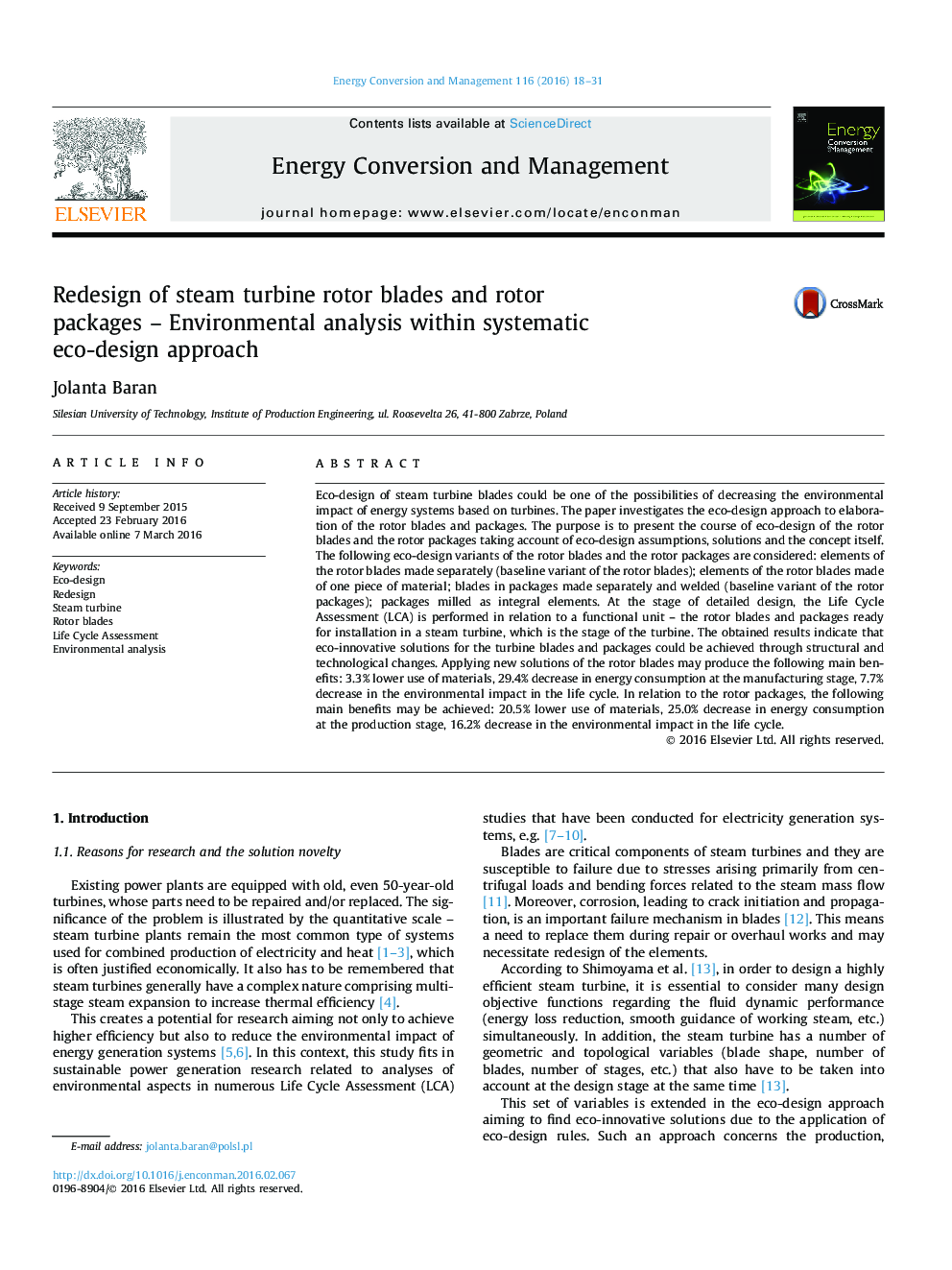| Article ID | Journal | Published Year | Pages | File Type |
|---|---|---|---|---|
| 760228 | Energy Conversion and Management | 2016 | 14 Pages |
•Systematic approach to eco-design of steam turbine rotor blades was applied.•Eco-innovative solutions are based on structural and technological change.•At the stage of detailed design the variants were analyzed using LCA.•Main achieved benefits: energy and material savings, lower environmental impact.•Benefits related to the possible scale of the solution practical application.
Eco-design of steam turbine blades could be one of the possibilities of decreasing the environmental impact of energy systems based on turbines. The paper investigates the eco-design approach to elaboration of the rotor blades and packages. The purpose is to present the course of eco-design of the rotor blades and the rotor packages taking account of eco-design assumptions, solutions and the concept itself. The following eco-design variants of the rotor blades and the rotor packages are considered: elements of the rotor blades made separately (baseline variant of the rotor blades); elements of the rotor blades made of one piece of material; blades in packages made separately and welded (baseline variant of the rotor packages); packages milled as integral elements. At the stage of detailed design, the Life Cycle Assessment (LCA) is performed in relation to a functional unit – the rotor blades and packages ready for installation in a steam turbine, which is the stage of the turbine. The obtained results indicate that eco-innovative solutions for the turbine blades and packages could be achieved through structural and technological changes. Applying new solutions of the rotor blades may produce the following main benefits: 3.3% lower use of materials, 29.4% decrease in energy consumption at the manufacturing stage, 7.7% decrease in the environmental impact in the life cycle. In relation to the rotor packages, the following main benefits may be achieved: 20.5% lower use of materials, 25.0% decrease in energy consumption at the production stage, 16.2% decrease in the environmental impact in the life cycle.
